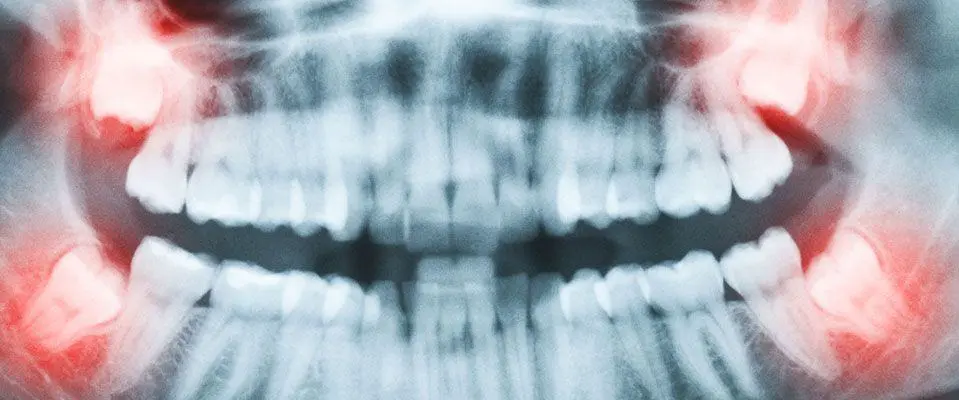Of all the teeth that people can potentially experience problems with, wisdom teeth are arguably the most common. Why are these teeth so special? And what can you do if you have a problem with one or all four of them? Here is what you need to know.
"Wisdom Teeth" is term that we use to refer to someone's third molars - usually the furthest-back teeth in the mouth on the top and bottom jaws, and almost certainly the last adult teeth to erupt. We don’t have wisdom teeth when we are children as the teeth tend to make their way through the gums and out into the mouth during the mid to late teenage years, right through until your 20s. Every patient is different and therefore, exactly when your wisdom teeth will erupt can vary, but this range is common.
We each have four wisdom teeth – one in each corner of the mouth, found right at the back of each arch. It is their late arrival into the mouth that usually triggers the onset of problems because often, by the time they start to erupt, there isn’t enough room at the back of the jaw to accommodate them. When these teeth don’t have enough space to erupt and come through, they are referred to as being impacted.

When we say that a Wisdom Tooth is impacted, we are referring to the fact that the tooth is at an angle. As teeth at an angle can be more difficult to remove, an experienced oral surgeon should perform the extraction.
Impacted wisdom teeth can cause a variety of problems including:
Note that sometimes a Wisdom Tooth can stay buried under the gum and in the bone, and thus never needs to be removed.
If you are experiencing pain with your wisdom teeth, your general dentist will likely recommend that you visit an oral surgeon like Dr. Ruvisnky to have the tooth or teeth extracted.. And even if you are not experiencing pain yet, your dentist may recommend that you have the third molars out if you are at high risk of developing some of the problems above.
If I have my wisdom teeth removed will it affect my bite? No. Don't worry about losing your wisdom teeth - we can manage perfectly well without our wisdom teeth, so removing them has no impact on our ability to bite, eat, or chew.
At what age should I have my wisdom teeth out? Often the earlier that the wisdom teeth are removed, the easier the procedure is. This is because the tooth's root will have not have completely developed, nor will the bone around the teeth be as dense. Thus, the procedure is easier and the recovery time is faster.
What x-ray is used for 3rd molar extractions? The most common type of film we use is a panoramic x-ray.
We will describe the procedure to you and answer any questions you may have. Wisdom teeth extractions are usually done under local anesthesia (similar to what you would have with a regular filling), although sedation may be available if needed. In some cases, and if we believe that the extraction may be difficult, we may recommended that you have general anesthesia. To remove the tooth, an incision is made around the impacted tooth so that it can be removed. It may be also necessary for some of the bone around the wisdom tooth to be removed so that the tooth can be removed.
You will be given specific post-op instructions how to care for your mouth after third molars have been extracted, and carefully following these instructions will greatly reduce your risk of experiencing any complications such as an infection or a dry socket. And don't forget that it may take a few hours until your anesthesia wears off completely.
Watch the video below to learn more about wisdom teeth:
If you are experiencing wisdom teeth pain and would like the advice and support of an experienced and professional dental surgery team, we would be delighted to help. Schedule an appointment at our Brooklyn, New York oral surgery office today - call us at: (718) 332-0300

© 2021 New York Institute of Oral and Maxillofacial Surgery - HIPAA Notice / Privacy Policy - Terms - Accessibility Statement